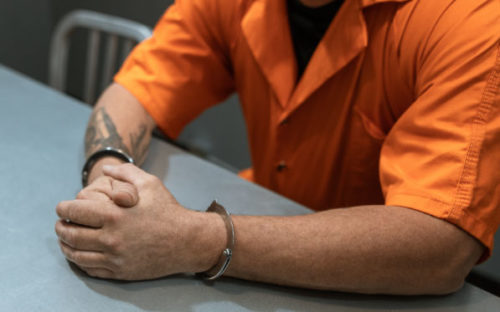
No matter what criminal charge you are facing, a felony and a misdemeanor can have serious consequences. Read on and reach out to our skilled Middlesex County criminal defense attorneys to learn more about how we can help you.
What are New Jersey’s felony laws?
Keep in mind that the state of New Jersey classifies felonies by degrees. There are four degrees of felony charges. The first degree has the most severe crimes while the fourth degree is for the least serious crimes. “Indictable” signifies that a grand jury must indict you to proceed with the case. In order to obtain an indictment, a grand jury must examine the facts of the case and decide if they feel that there is enough proof to support criminal charges. If the grand jury decides that there is sufficient evidence they will construct a written statement which is known as an indictment.
- First-degree crimes in New Jersey include rape, manslaughter, and murder.
- Second-degree crimes include aggravated arson, kidnapping, sex crimes, white-collar crimes, and drug crimes.
- Third-degree crimes are arson, possession of a controlled substance, certain robbery offenses, as well as some DUI offenses.
- Fourth-degree crimes include the remaining robbery and DUI offenses as well as forgery.
What are the consequences of a felony?
- First Degree Crimes: The prison sentence for a first-degree crime is between ten years and a life sentence depending on the offense. Furthermore, a court can set a maximum fine of up to $200,000.
- Second Degree Crimes: For a second-degree felony the court can set a prison sentence between five and ten years and a fine of up to $150,000.
- Third Degree Crimes: A court has the power to sentence someone with a third-degree conviction to three to five years in prison as well as a fine of up to $15,000.
- Fourth Degree Crimes: A fourth-degree conviction can end up in a prison sentence of up to 18 months and a fine of up to $10,000.
What are New Jersey’s misdemeanor laws?
In New Jersey, misdemeanors are referred to as “disorderly person” crimes. These offenses vary in harshness. There are two types of misdemeanors in New Jersey, disorderly person offenses, and petty disorderly person offenses. While it is not as standard to receive jail time for misdemeanor offenses as it is with felonies, it can still occur.
What are the consequences of a misdemeanor?
- Disorderly person charges can end up with up to six months in jail and a fine of up to $1,000.
- Petty disorderly person charges include a maximum jail sentence of 30 days in addition to a $500 maximum fine.
Contact our experienced New Jersey firm
When someone is charged with a crime, they have a lot to consider. However, we understand that everyone makes mistakes, which is why we are here to help. No matter your circumstances, if you are facing criminal charges, contact the Law Offices of Michael A. Policastro today for the experienced legal counsel you deserve and need.